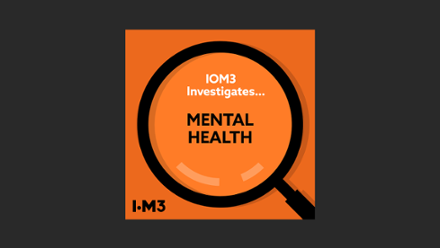Head first – the importance of mental health first aid
To mark Mental Health Week in May, Heather Beach at the Healthy Work Company, UK, reflects on mental health first aid in the workplace.

We have physical first aiders in our workplaces so why not have Mental Health First Aiders too? There has even been an attempt to make mental health first aid a legal requirement for organisations to undertake. It ultimately proved unsuccessful, however, more and more firms are incorporating it into their health and safety programmes. So, what is it exactly and how might it benefit your organisation?
Essentially, a course in Mental Health First Aid upskills certain individuals within the business to understand mental health and mental illness and to have a conversation with someone who might be struggling to signpost them to further support. It has been used in organisations successfully in many cases, helping to destigmatise mental illness and encourage open conversations about the very human struggles that most of us go through from time-to-time – not necessarily with diagnosed mental illness, but certainly those with mental distress.
The core of the course is understanding mental illness, understanding that we all exist on a continuum when it comes to mental health – some days it is good, some days it is bad – but also improving non-judgmental listening.
The most well-known version of the course comes from Mental Health First Aid England, which is held over two days or several online sessions, resulting in a certificate of attendance. However, there are now many more workplace specific versions which, on completion, can lead to other recognised qualifications.
There are also options to take ‘lighter’ versions of the courses, which are shorter and aim to build basic knowledge and skills. This is appropriate particularly if you do not wish to appoint an official Mental Health First Aider, but wish to upskill a section of your workforce.
While there is no doubt that training in mental health awareness, better listening and signposting skills will improve your workplace culture and, generally, make work a nicer place to be, there are a number of questions you should ask yourself before embarking on a programme.
Firstly, mental health first aid is suitable for peer-to-peer support, but have you trained your managers in having wellbeing conversations within their team? If not, then this is a good place to start. Manager duties under the Equality Act 2010 are not covered in a mental health first aid course, and, in fact, some of the advice on mental health first aid courses is actually counter to best practice for managers – for example, when it comes to confidentiality, where having private conversations and knowing how to safeguard the wellbeing of their teams (as far as possible), should be part of a manager’s skillset.
Secondly, as mentioned, do you want to create an official role here or do we just want to upskill certain individuals/lots of people? If it is to be an official role, are you going to select people or allow volunteers? How will you promote that the role exists? Do you want to call it a Mental Health First Aid role or perhaps a Wellbeing Ambassador or Champion? Finally, does creating a role mean that it will be perceived that only certain people have those ‘types of conversations’?
Ultimately though, training in skills around mental health can benefit not only the individual taking the course, but potentially the wider workplace. However, as with any training, you should look at what you want to achieve before beginning the learning.
For more information on courses through Mental Health First Aid England visit www.mhfaengland.org


